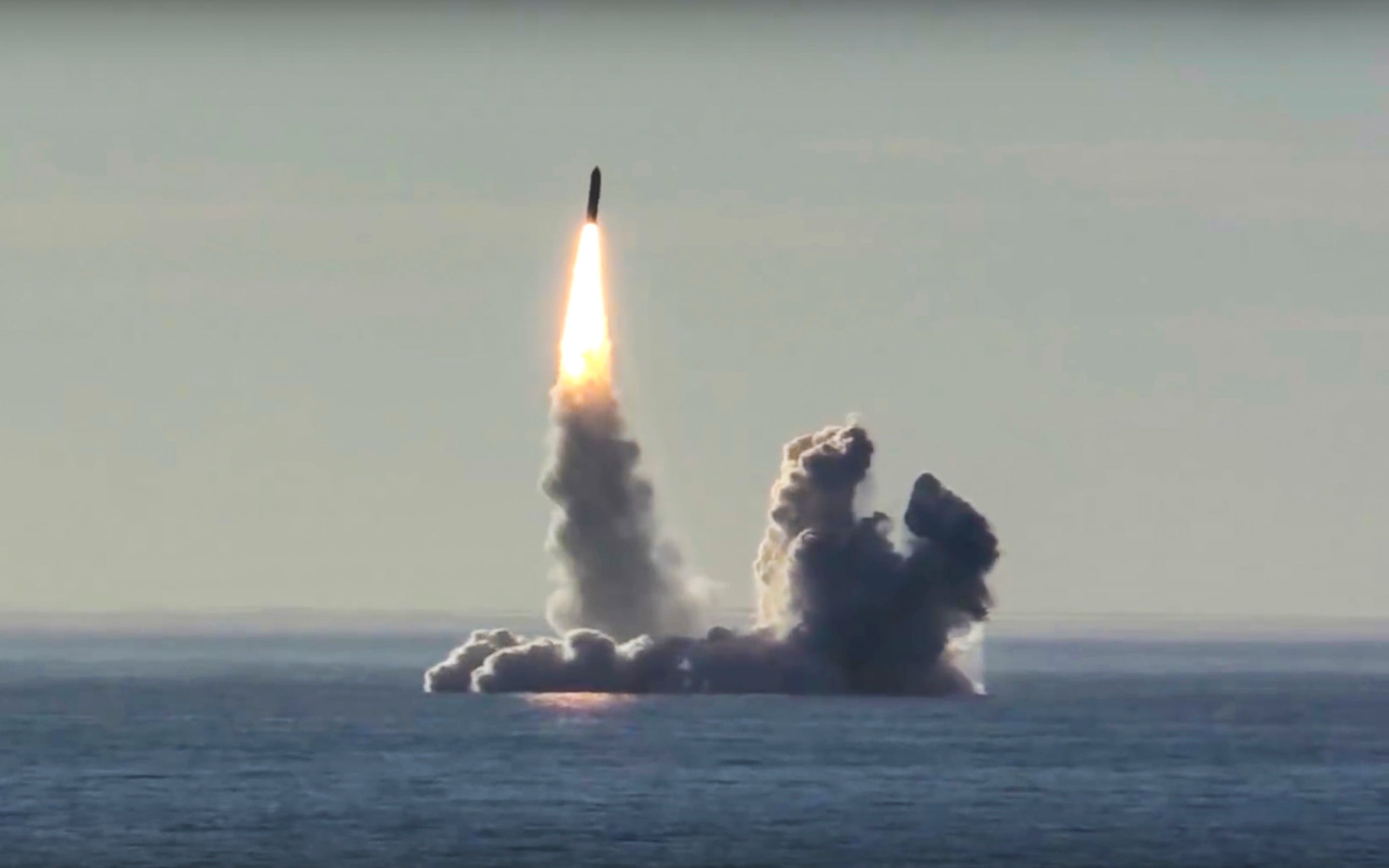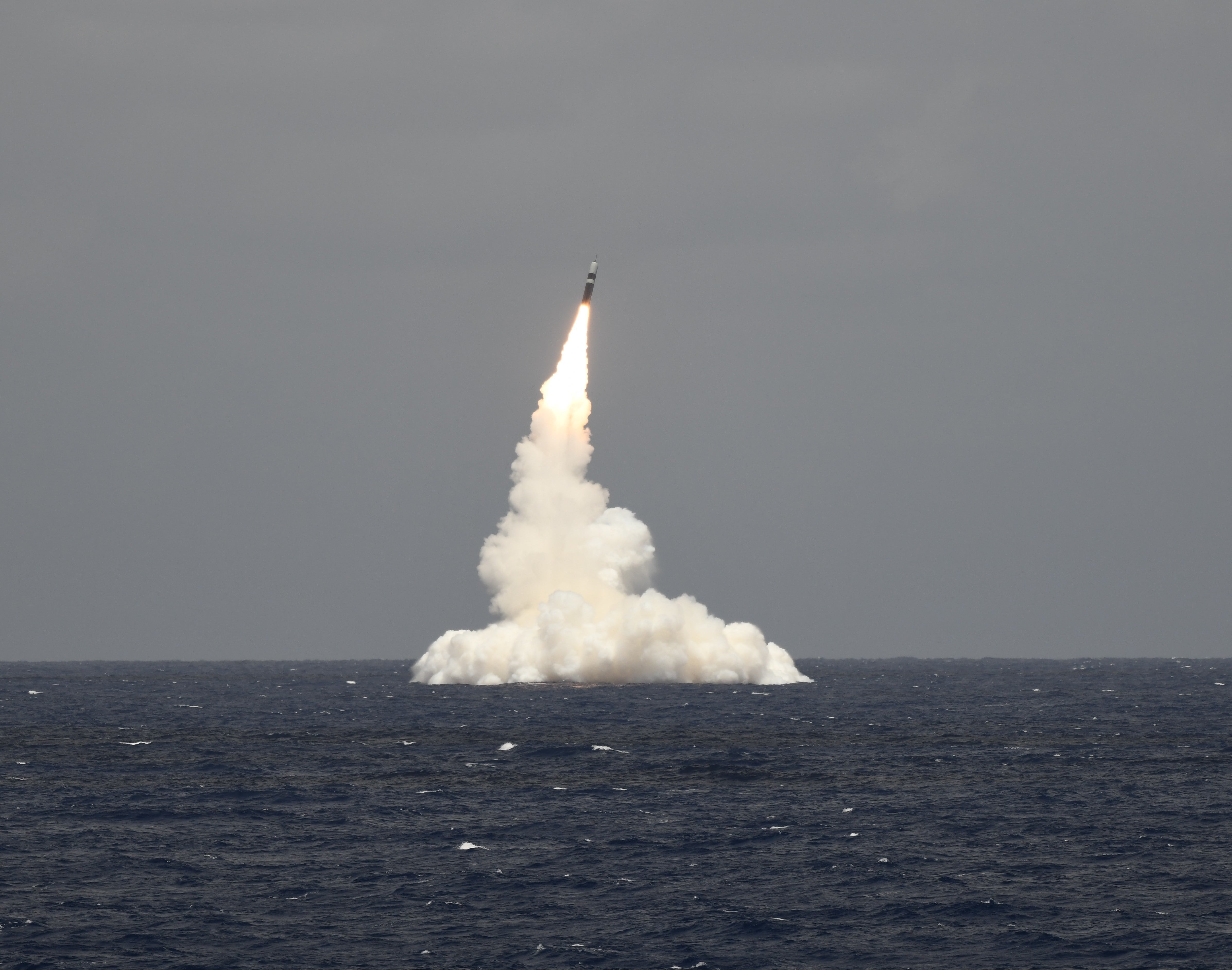MINOT AIR FORCE BASE, N.D. — With a major arms control agreement between the U.S. and Russia set to expire next February, members of the nonproliferation community have been watching for signs that negotiations may begin in earnest.
For those observers, some welcome news: Movement on the Trump administration’s arms control plan is “imminent,” according to a senior defense official familiar with internal administration discussions.
However, what that looks like appears to be up in the air: a short-term extension of the New START agreement with Russia; something that involves nuclear-armed China; a combination of those two; or all parties walking away entirely.
“All the options are literally on the interagency table,” the official told Defense News on condition of anonymity.
The New START agreement, signed in 2010, is an arms control pact between Russia and the U.S. that restricts each country to a total of 1,550 warheads deployed on bombers, submarines and in underground silos. Following the dissolution of the Intermediate-Range Nuclear Forces Treaty, New START is the only major nuclear arms control agreement left between the two nuclear powers.
China has traditionally refused to sign onto arms control agreements. But Beijing has become a focus for those in Washington convinced that any new arms control agreement must include the Asian nation. China is estimated by the Federation of American Scientists to have 290 nuclear warheads, compared to more than 6,000 for Russia and the U.S. each, and the country is investing in nuclear modernization efforts.
Though top Chinese officials made clear that Beijing will not participate in trilateral talks, U.S. President Donald Trump in December expressed optimism that a deal could happen, saying Chinese officials “were extremely excited about getting involved. ... So some very good things can happen with respect to that.”
While traveling last week to tour the intercontinental ballistic missile fields at Minot Air Force Base, North Dakota, Defense Secretary Mark Esper declined to speculate on the state of negotiations and what he would recommend Trump do. But he did indicate there would be a meeting at his level “soon” on the issue.
“If we proceed forward [with New START], we have to include Russia’s new strategic weapons. They have to be included in the treaty. Number two, we should include Russia’s nonstrategic nuclear weapons. They have nearly 2,000 of them,” Esper said. “Then I think we should put on the table: Can we bring China into the fold? We’re trying to create strategic stability. It’s hard to do that if you have a country of China’s capacity and capability outside of that treaty.”
Speaking at Minot later, Esper added: “If we want to preserve strategic stability using arms control as a counterpart of that, as a tool in that toolkit, then China should be in as well.”
State of discussion
While some have theorized that the Trump administration is trying to run out the clock on negotiations, the official ascribed the slow public movement to myriad “distractions” around Washington that has sucked attention from Trump, Esper and Secretary of State Mike Pompeo. The official added that the outbreak of the coronavirus known as COVID-19, which originated in China, has made discussions with Chinese counterparts difficult.
There have been ongoing meetings on the issue at the assistant secretary level across the Defense Department, the National Security Council, the State Department and the National Nuclear Security Administration. “Ultimate decisions haven’t been taken yet, but [a proposal] should be imminent,” the official said.

The first challenge, timewise, is the Feb. 5, 2021, expiration date for New START. Getting something done before then may be a challenge, especially if the goal is an expanded arms control agreement that loops in China, but “physically, you could do it because it doesn’t require senate ratification, just a couple of notes signed by just getting everyone — the three sides — to agree to something,” the official said.
The question of New START’s fate is complicated by the desire to loop in China on a new agreement. Administration officials have been working to develop a compelling case for how to convince Beijing to join a trilateral nuclear deal.
The argument largely comes in two forms. First, that if China does not sign onto a nuclear arrangement of some sort, it could lead Russia or the U.S. to consider growing their own arsenals — ensuring China’s nuclear inferiority at a time when the Pacific power is racing to grow its stockpile.
The second argument is that great powers work on nuclear agreements together — and so joining one as equals with Washington and Moscow should appeal to Beijing’s desire for recognition on the global stage.
Meia Nouwens, an expert on Chinese military affairs with the International Institute for Strategic Studies, says those two arguments are the most sensible ones to put forth to Beijing, particularly the appeal to China as a great power. She also speculated that if China’s economy takes a downturn, it may find cooperating with the rules-based international system to be a “greater priority” than a China-first agenda.
But, Nouwens predicts, “it will require the U.S. and Russia to make the first steps though before China decides to agree to reducing what it views as an already significantly smaller Chinese nuclear arsenal. The trust isn’t there.”
RELATED

Rose Gottemoeller, who served as undersecretary of state for arms control and international security at the U.S. State Department during the Obama administration, before becoming deputy secretary general of NATO from 2016-2019, believes a careful calibration of what, exactly, is being negotiated will be key to any negotiation involving the Chinese.
“I think you can make a case for the Chinese to come to the table early on intermediate-range constraints of ground-launched missiles because they are staring at the possibility of a deployment of very capable U.S. missiles of this kind,” she said at a January event hosted by the Defense Writers Group.
“But I am concerned, they have so few warheads that if you put an emphasis on controlling their warheads, the incentive is for them to run the other direction rather than come to the table,” she added.
Gottemoeller also indicated that the question of extending New START is a separate one from trying to bring China into the arms control fold.
“The way the expansion program of New START is written, it’s written so that it remains in place four to five years, so from ’21 to ’26, or until superseded by a new treaty. So it’s not as if the administration is stuck with New START for another five years,” she said. “Go for it. Work on the new treaty. Get it done. And then New START would be superseded by the new treaty entering into force,” if ratified.
“Let’s just get on with what we need to do in negotiating new treaties. I am concerned that there will be a lot of gamesmanship going on, and as I said, the Russians are excellent in that kind of game as well,” she added. “Let us not play around with leverage in this case, but simply extend the thing for five years and then get done what we need to get done, which is to negotiate these new treaties."
Aaron Mehta was deputy editor and senior Pentagon correspondent for Defense News, covering policy, strategy and acquisition at the highest levels of the Defense Department and its international partners.





